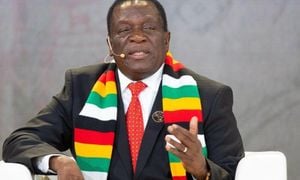Queensland has ignited significant controversy by passing new laws intended to crack down on youth crime, which will see children as young as ten facing the same maximum penalties as adults for severe offenses. The legislation, known as the "Make Queensland Safer Laws," introduces drastic measures aimed at addressing what the government describes as rampant youth crime, which they assert has left many residents feeling unsafe. The measures include provisions for mandatory life sentences for juveniles convicted of murder, along with other serious charges, drawing ire from human rights advocates and legal experts alike.
Premier David Crisafulli championed the changes, declaring, "These laws are for every Queenslander who has ever felt unsafe and been a victim of youth crime across our state." He asserted the legislation is not just about punishment but is promoted as a response to community demands for increased safety, positioning it as fulfilling promises made during his party's election campaign.
Critics, on the other hand, argue the laws represent not just a shift toward increased punishment but also disregard established human rights protocols, including regulations from the United Nations addressing the rights of children. Highlighting their concerns, Maggie Munn, the First Nations Justice Director at the Human Rights Law Centre, stated, "How can the Premier sleep at night knowing he is condemning Queensland children to bleak futures, especially when these children are predominantly Aboriginal and Torres Strait Islander?"
The new laws will remove provisions requiring detention to be used only as a last resort, which has long been upheld as best practice for juvenile justice. This change appears contradictory to findings from the 1991 Royal Commission Into Aboriginal Deaths in Custody, which advocated alternative approaches to youth crime.
Legal experts and human rights advocates have voiced alarm at the potential ramifications of these changes. The increase of maximum sentences for certain offenses moves the state toward what experts fear may become a punitive system devoid of restorative justice principles. For example, children's sentences for burglary and serious assaults on police officers will see maximum penalties double, from seven to fourteen years. Brought to attention was the historical evidence showing no significant reduction in youth crime corresponding with tougher sentencing practices, with many arguing harsher penalties may instead drive youth toward future offenses.
Further compounding these worries is the acknowledgment by the government itself of the challenges facing Queensland’s already overstretched youth justice system. Crisafulli confirmed there would be substantial pressure on the system, which has witnessed growing concerns about overcrowding, with current facilities unable to cope with the number of detained children. The government admitted the laws are likely to disproportionately affect Indigenous youth, who already represent a staggering majority of children detained nationally.
Queensland has recorded immense rates of Indigenous youth incarceration, surpassing all other states and territories. Debbie Kilroy, chief executive of Sisters Inside, described the day the law passed as a "dark day" for Queensland, pointing out, “This legislation targets some of the most vulnerable children in our community, primarily Aboriginal and Torres Strait Islander youth, and we will see the resulting harms for generations to come.”
Although Premier Crisafulli and his government assert the laws aim to protect victims and promote public safety, these claims have been met with skepticism. Data from the Australian Bureau of Statistics suggests youth crime rates across Queensland have halved over the past fourteen years, impacting the validity of the government’s claims about rising youth crime. Evidence indicates crime rates are already on the decline, contradicting the narrative presented by proponents of the legislation.
Experts are now raising alarms about the psychological and developmental impact of incarcerations under these new laws on children, susceptible and more likely to be influenced negatively by the criminal justice system. It's well-documented within the field of developmental psychology and criminology: the earlier children encounter criminal justice processes, the more likely they are to re-offend later.
The passage of the legislation follows just eight days of parliamentary inquiry and only two days of hearings— prompting significant debate on the rushed nature of these reforms. Many members of the opposition and community stakeholders have expressed concerns about the lack of thorough deliberation before implementing such serious changes. Labor MP Shannon Fentiman noted, "Stakeholders have raised some pretty big issues with these laws. The committee report contains extensive expert advice and evidence requiring consideration before proceeding."
Summing up his commitment to public safety, Crisafulli reassured constituents by stating, "The KPI is fewer victims of crime, and we must prioritize them." This collective focus on victims signals the rising trend of punitive measures across political platforms as lawmakers wrestle with the complex realities of youth crime. Yet, the echoing sentiments of many who question this path highlight the need for comprehensive reform and evidence-based policies rather than sweeping punitive measures.
This controversial legislation, termed “adult crime, adult time,” has sparked not only debate within the Queensland Parliament but has also attracted international scrutiny from bodies concerned with human rights practices. According to Anne Hollonds, Australia's Commissioner for Children, these changes could lead to international embarrassment. Critically, she underlined, "The younger a child interacts with the justice system, the more likely it is they will continue to commit serious offenses. This reality makes this retreat from human rights even more shocking.”
Despite extensive criticisms, Crisafulli has announced plans to create an expert panel reviewing the effectiveness of the laws, which may lead to their potential amendment or expansion. With the backdrop of community fears of rising youth crime placated by tougher laws, Queensland finds itself at a pivotal juncture, balancing community safety against the protection and rehabilitation of its youth. The representatives of various sectors of society, from legal experts to human rights advocates, will undoubtedly continue to observe how these laws evolve and the tangible impacts they have on Queensland’s young population.
Queensland's approach to youth justice reflects broader tensions within societal power structures and the collective approach to marginalized communities. The coming months will demonstrate whether the goals of this legislation can coexist with the pursuit of justice and humane treatment of all children.



